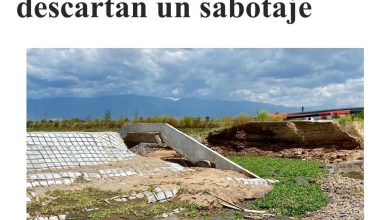Día Mundial para la Prevención del Suicidio; dónde recibir ayuda psicológica GRATIS en México. Cada 10 de septiembre se conmemora el Día Mundial para la Prevención del Suicidio.


Día Mundial para la Prevención del Suicidio: Dónde recibir ayuda psicológica GRATIS en México
Cada 10 de septiembre se conmemora el Día Mundial para la Prevención del Suicidio, una fecha para concientizar sobre este problema de salud mental y promover el acceso a recursos de apoyo. En México, existen diversas opciones para recibir ayuda psicológica gratuita y prevenir el suicidio.
Líneas de atención telefónica
- SAPTEL (Servicio de Atención Psicológica Telefónica): 55 5259 8121
- Línea Nacional de la Vida: 800 911 2000
- Línea de la Esperanza: 01800 009 2000
Organizaciones no gubernamentales
- Mexicanos contra la Tristeza: Ofrece terapia gratuita en línea y presencial.
- Fundación Hilos de Plata: Brinda atención psicológica a personas adultas mayores.
- Ascend: Proporciona apoyo emocional a jóvenes y adolescentes.
Instituciones públicas
- IMSS (Instituto Mexicano del Seguro Social): Ofrece servicios de atención psicológica en sus unidades médicas.
- ISSSTE (Instituto de Seguridad y Servicios Sociales de los Trabajadores del Estado): Brinda atención psicológica a sus derechohabientes.
- Sistema Nacional para el Desarrollo Integral de la Familia (DIF): Cuenta con programas de apoyo psicosocial.
Recuerda que no estás solo y que hay ayuda disponible. Si tú o alguien que conoces está pasando por una situación difícil, no dudes en buscar apoyo en estas opciones de ayuda psicológica gratuita en México.
Referencias
- Organización Mundial de la Salud – Día Mundial para la Prevención del Suicidio
- Gobierno de México – ¿Dónde recibir apoyo psicológico gratuito en México?

La salud mental es un tema que con el tiempo ha tomado relevancia en nuestra sociedad, pues según lo señalado por la Organización Mundial de la Salud (OMS), cada año cerca de 703 mil personas se quitan la vida en el mundo gracias a no poder comunicar su sentir o en otros casos debido a las preocupaciones que existen en la vida diaria, como es la escuela o en el trabajo.
Nota completa: https://www.mediotiempo.com/otros-mundos/dia-mundial-para-la-prevencion-del-suicidio-donde-recibir-ayuda-gratuita-en-mexico
[matched_content]
Here are some important social SEO tags to include on your website:
1. Open Graph Tags (OG Tags):
– og:title: The title of your content as it should appear when shared on social media.
– og:description: A brief description of your content, typically limited to 2-4 sentences.
– og:image: The URL of an image that represents your content when shared on social media.
– og:url: The canonical URL of your content.
– og:type: The type of content, such as “website,” “article,” “video,” etc.
– og:site_name: The name of your website.
2. Twitter Card Tags:
– twitter:card: The type of Twitter Card to be used (e.g., “summary”, “summary_large_image”, “app”, “player”).
– twitter:site: Your website’s Twitter handle.
– twitter:creator: The Twitter handle of the content creator or author.
– twitter:title: The title of your content as it should appear when shared on Twitter.
– twitter:description: A brief description of your content for Twitter.
– twitter:image: The URL of an image that represents your content when shared on Twitter.
3. Schema Markup:
– Itemscope: Used to define the scope of an item.
– Itemtype: Specifies the type of item being described (e.g., “http://schema.org/Article”).
– Itemprop: Used to define properties of an item (e.g., “headline”, “description”, “image”, “author”, “datePublished”).
4. Facebook-specific Tags:
– fb:app_id: The unique ID of your Facebook App, which is used to gather insights about your content’s performance on Facebook.
– fb:admins: A comma-separated list of Facebook user IDs of the people who can access insights for your content.
5. Pinterest-specific Tags:
– pinterest-rich-pin: Indicates that your page is eligible for Pinterest Rich Pins.
– pinterest-verification: Used for verifying your website with Pinterest.
6. LinkedIn-specific Tags:
– linkedin-share-url: The URL to share on LinkedIn.
– linkedin-title: The title of your content as it should appear when shared on LinkedIn.
– linkedin-description: A brief description of your content for LinkedIn.
– linkedin-image-src: The URL of an image that represents your content when shared on LinkedIn.
When implementing these tags, make sure to include them in the
section of your HTML document. Additionally, test your implementation using tools like Facebook’s Sharing Debugger, Twitter Card Validator, and Google’s Structured Data Testing Tool to ensure they are working correctly.


